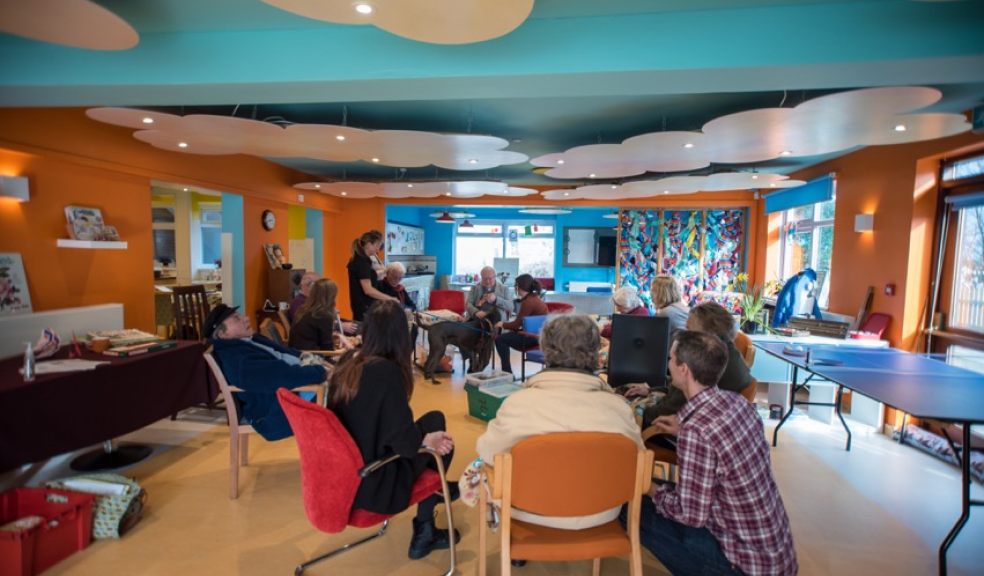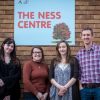
Specialist dementia service unveiled in Devon
An innovative new specialist dementia service to help sufferers live a better quality of life for longer has been launched in South Devon.
The Ness Centre, in Teignmouth, helps people stay independent for as long as possible by combining research-based cognitive and physical activities with social interaction and technology.
Run by Atlas Respite and Therapy (Art) the purpose-designed centre also provides respite, reassurance and teaching for families and carers. It is the only day care dementia service in Devon using the pioneering Dutch model of specialist meeting centres to manage the symptoms of the illness.
Founder Jonathan Hanbury, originally from London, chose the South West of England to launch the business, because of the high levels of dementia in many parts of the region. He started ART following a nursing and senior management career in the NHS, spanning 17 years.
Driven by a desire to relocate to the West Country for its strong community and family focus, and the perfect location to raise his own young family, Jonathan was also aware that Devon has one of the highest populations of individuals living with dementia.
The South West is one of the areas in the UK with the highest incidence of undiagnosed dementia. There are currently 10,301 diagnosed people living in Devon, a county with one of the lowest diagnosis rates in the UK, and potentially experts believe the figure could be nearly twice as high.*
The known prevalence of the disease in Teignbridge and South Devon stands at 3.82% of the population aged over 65, compared to the national average of 1.7%. In Cornwall, the rate is estimated at 3.03% of the population.**
Jonathan said: “We’re really excited to be offering the very latest dementia care at the Ness Centre. The South West has a significant older population and we want to be at the forefront of offering the very best specialist care, based on research, respect and working alongside families to help their loved one.
“With dementia, memories may fade but feelings and emotions remain and that’s what can make a difference and delay the onset of more severe symptoms. The warm, friendly and positive environment we have created at the centre, and the work we do based on the latest research, leaves people with feelings of happiness, trust and reassurance.
“It takes time as people build confidence but this is the feedback we are getting from families and carers. It’s wonderful to see the real difference the centre makes to them and, most importantly, our members.”
For most families and carers, putting their loved one into full time residential care is the last resort. Along with the financial implications, seeing their loved one leave their home and lose their independence can be tough.
The innovative techniques used at the Ness Centre, with full and half day sessions available, helps people to stay in their own home for longer and retain a sense of dignity and self worth. The centre is also able to give carers and family members, training, support, advice and respite when needed.
Jonathan, who has moved to the West Country with his wife and eight-month-old son, explains what sets the centre apart: “We wanted to avoid the centre feeling institutionalized and medical. Working with architects who specialise in constructing stimulating spaces for dementia patients, we have created a light, stimulating, fun and productive place for people to feel comfortable and happy. We have a kitchen and café, a small garden, a quiet room and are putting the finishing touches to our salon and spa.”
Members take part in a range of activities such as crafts, cookery, gardening, singing, Tai chi, pet therapy, yoga an even virtual reality, with trained therapists ensuring the activities are tailored to the person, their preferences and diagnosis. iPads and virtual reality settings are used, where appropriate, too.
With an increasing ageing probation, the number of people with dementia is set to continue to rise, says Jonathan.
“With an ageing population, the South West needs to be at the forefront of research and care for people with dementia. Whilst it can be incredibly challenging for families, research shows that with early specialist care and support, people can continue to lead a happy and active life and stay in their own home for longer, helping them remain part of a community and doing the things they love.”
The Dutch model of dementia care, designed by the University of Amsterdam in the 1990s, integrates different types of support and activities, collaborating with health and welfare services. Research revealed benefits included people showing less depressive symptoms and higher self-esteem than clients in regular day-care. Admission to a nursing home is also delayed. The main benefits for carers were that they experience more support, have an increased feeling of competence, and feel less burdened.
The Ness Centre works with the Ageing and Dementia Research Centre in Bournemouth University, to ensure staff are using approaches based on rigorous research and best practice.
Although there is no cure for dementia, research shows that you can help improve or sustain a person’s quality of life for longer, by ensuring they remain as engaged as possible. The National Institute of Health and Care Excellence (NICE)*** states that ‘supporting a person who has dementia to remain active and still feel involved in life can be the key to maintaining quality of life, even into the later stages of the illness’.















